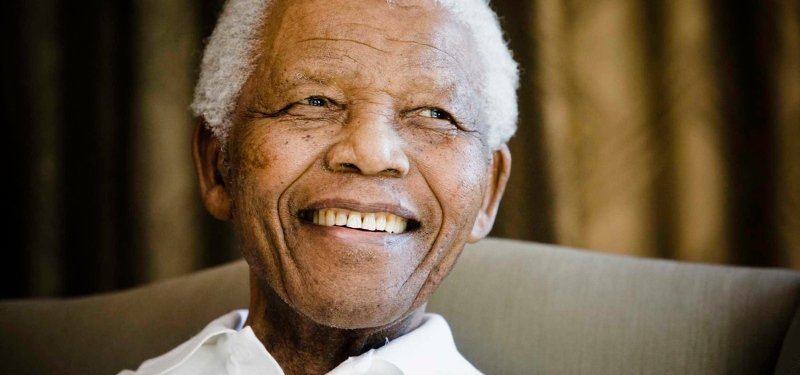
South Africa remembers legendary freedom fighter Nelson Mandela
Mandela devoted his life of 95 years, including a prison sentence of 26 years, to ending the racist apartheid regime in the country.
- Life
- Anadolu Agency
- Published Date: 05:23 | 05 December 2021
- Modified Date: 05:23 | 05 December 2021
South Africa on Sunday remembered legendary freedom fighter Nelson Mandela on the eighth anniversary of his passing.
Mandela devoted his life of 95 years, including a prison sentence of 26 years, to ending the racist apartheid regime in the country.
As such, his struggle lives on and continues to enlighten the present generation.
Mandela was born on July 18, 1918 into the Madiba clan in the village of Mvezo, in the province of Eastern Cape.
As a son of prominent local chief, he was able to get a quality education, something which most black children did not have access to.
Mandela renounced his claim to the chieftainship after his father to become a lawyer. He attended South African Native College (later the University of Fort Hare) and studied law at the University of the Witwatersrand, one of the most prominent universities of the country at the time.
In 1944 he joined the African National Congress (ANC), a Black liberation group, and became a leader of its Youth League.
In 1952 in Johannesburg, with fellow ANC leader Oliver Tambo, Mandela established South Africa's first Black law practice, specializing in cases resulting from the post-1948 apartheid legislation.
The same year, he contributed to the launching of a campaign of defiance against South Africa's pass laws, which required nonwhites to carry documents authorizing their presence in areas that the government regarded as restricted.
In 1955 he was involved in drafting the Freedom Charter, a document calling for nonracial social democracy in South Africa.
ARREST FOR OPPOSING APARTHEID, GIVEN LIFE SENTENCE
In 1956, Mandela was arrested with more than 100 other people on charges of treason that were designed to harass antiapartheid activists. He went on trial that same year and eventually was acquitted, in 1961.
After the massacre of unarmed Black South Africans by police forces in the northeastern town of Sharpeville in 1960 and the consequent banning of the ANC, Mandela abandoned his nonviolent policy and began advocating acts of sabotage against the apartheid regime
In 1962 he went to Algeria and returned to South Africa later that year.
In October 1963, Mandela, along with several others, was tried for sabotage, treason, and violent conspiracy and was sentenced to life in prison in 1964.
From 1964 to 1982-nearly a quarter century-he was incarcerated at Robben Island Prison, off Cape Town.
Mandela was subsequently transferred to the maximum-security Pollsmoor Prison.
SUPPORT, RELEASE, PRESIDENCY
During his prison term, Mandela attracted widespread support among South Africa's Black population, and his imprisonment became a cause celebre among the international community, which increasingly condemned the country's apartheid regime.
In 1990, the South African government under then-President F.W. de Klerk (who died just last month) released Mandela from prison.
Shortly after his release, Mandela was chosen deputy president of the ANC, and its president in July 1991. Mandela led the ANC in negotiations with de Klerk to end apartheid and bring about a peaceful transition to nonracial democracy in South Africa.
In 1993, Nelson Mandela shared the Nobel Peace Prize with de Klerk, the man who had released him, because they had agreed on a peaceful transition to majority rule.
On May 1995, Mandela was sworn in as president of the country's first multiethnic government.
He stepped down in 1999 after one term as president and continued to work with the Nelson Mandela Children's Fund he set up in 1995 and also established the Nelson Mandela Foundation and the Mandela Rhodes Foundation.
He passed away on Dec. 5, 2013, a freedom fighter with legendary accomplishments and an indelible legacy.

